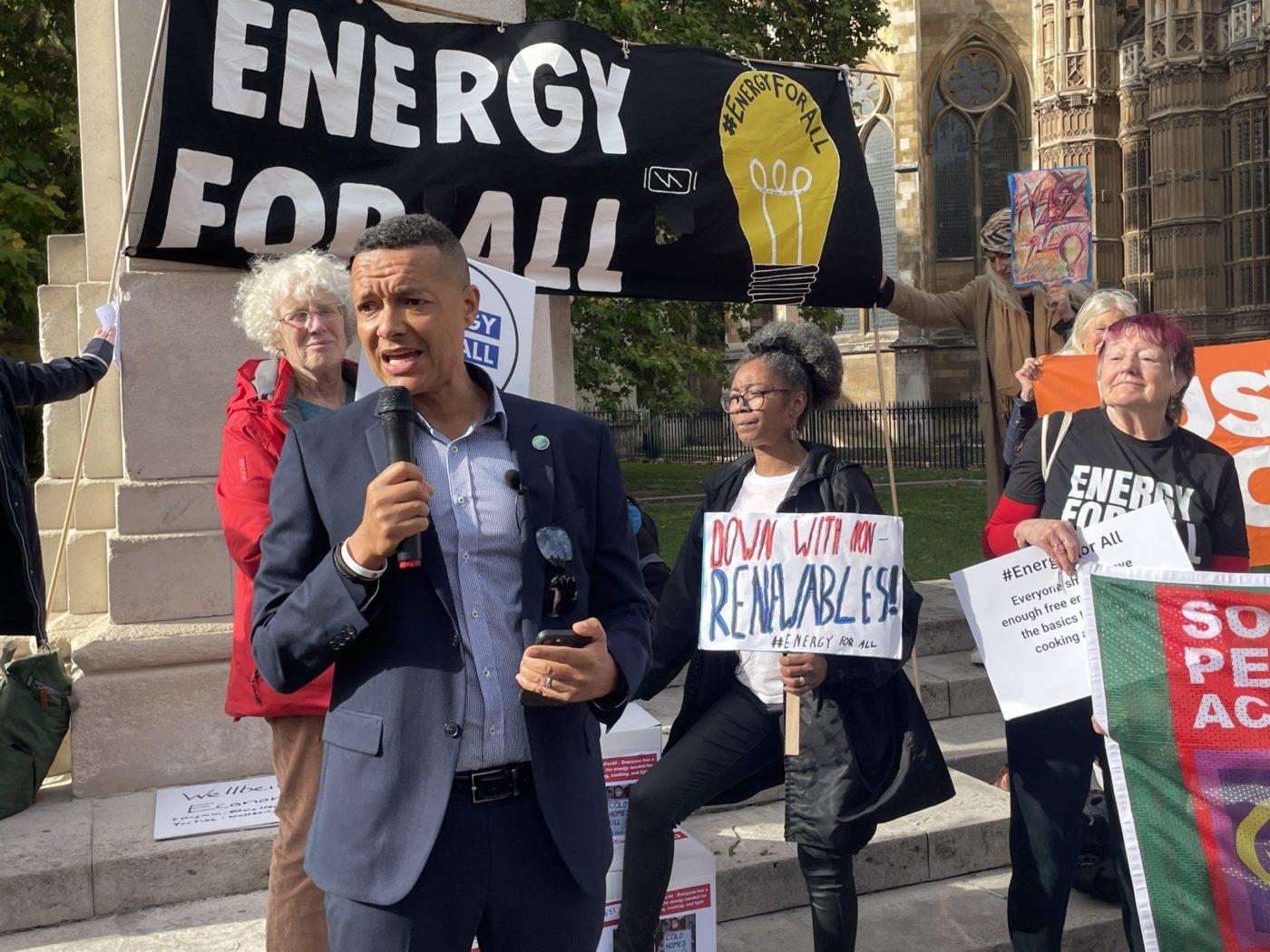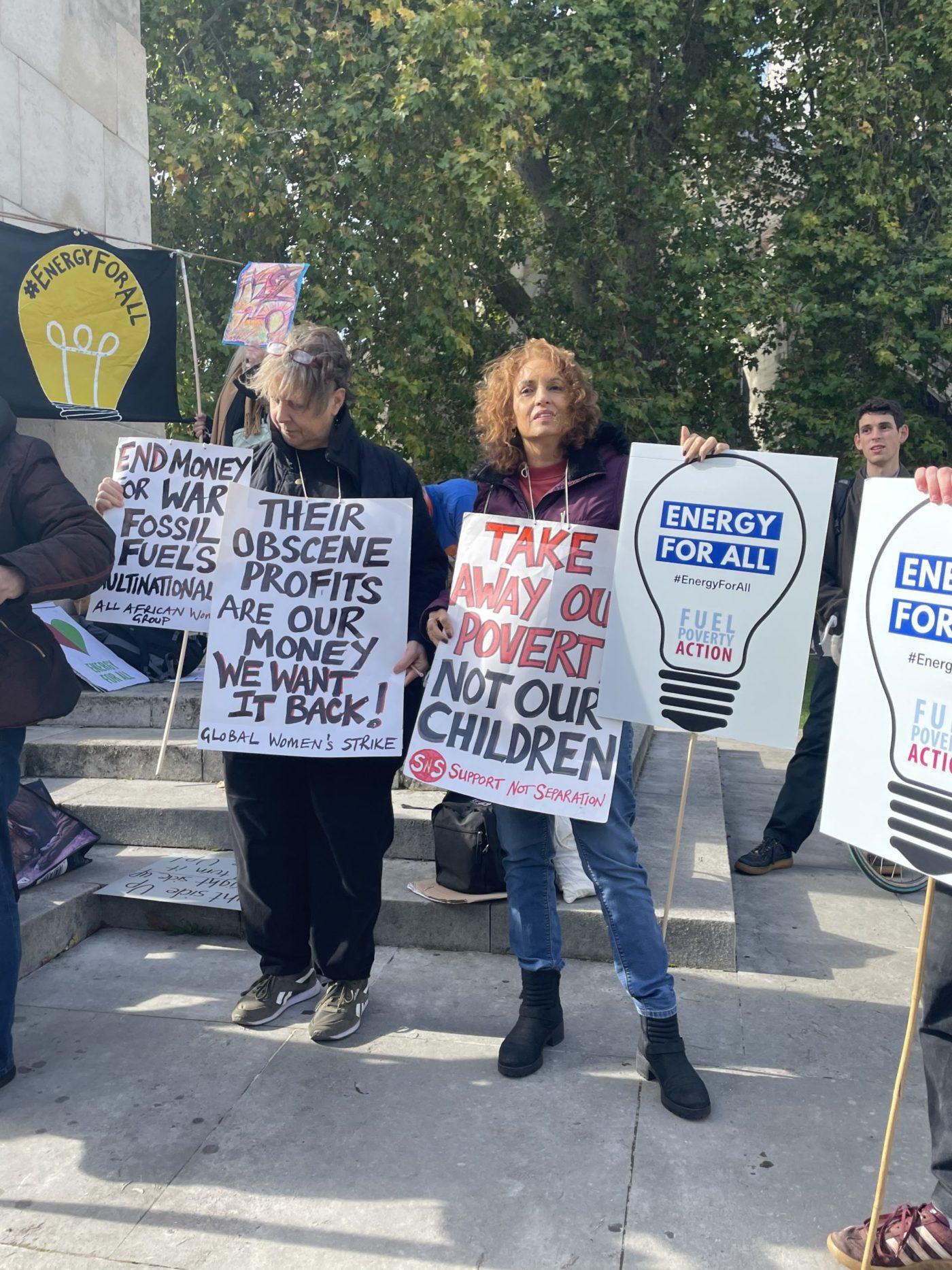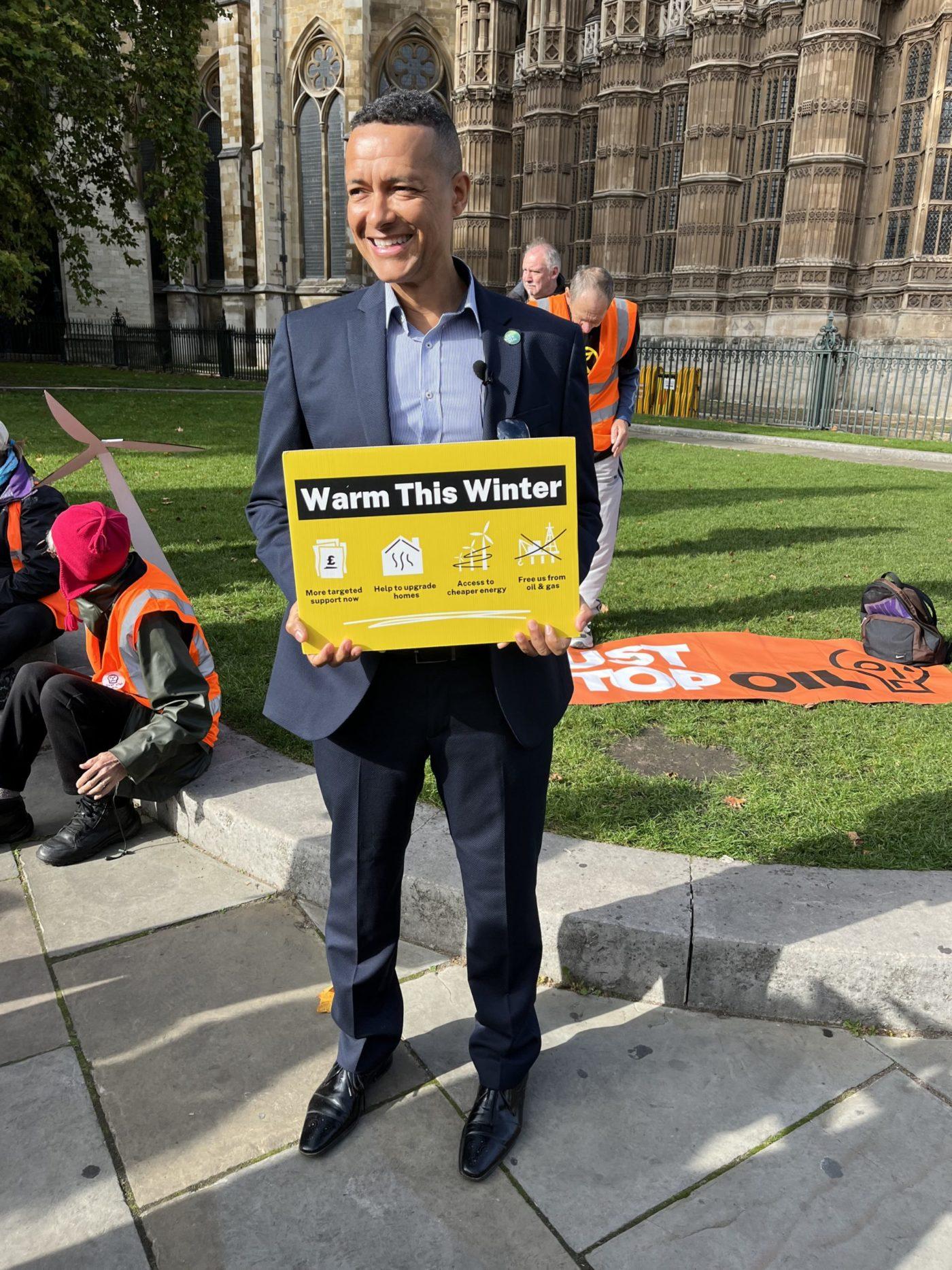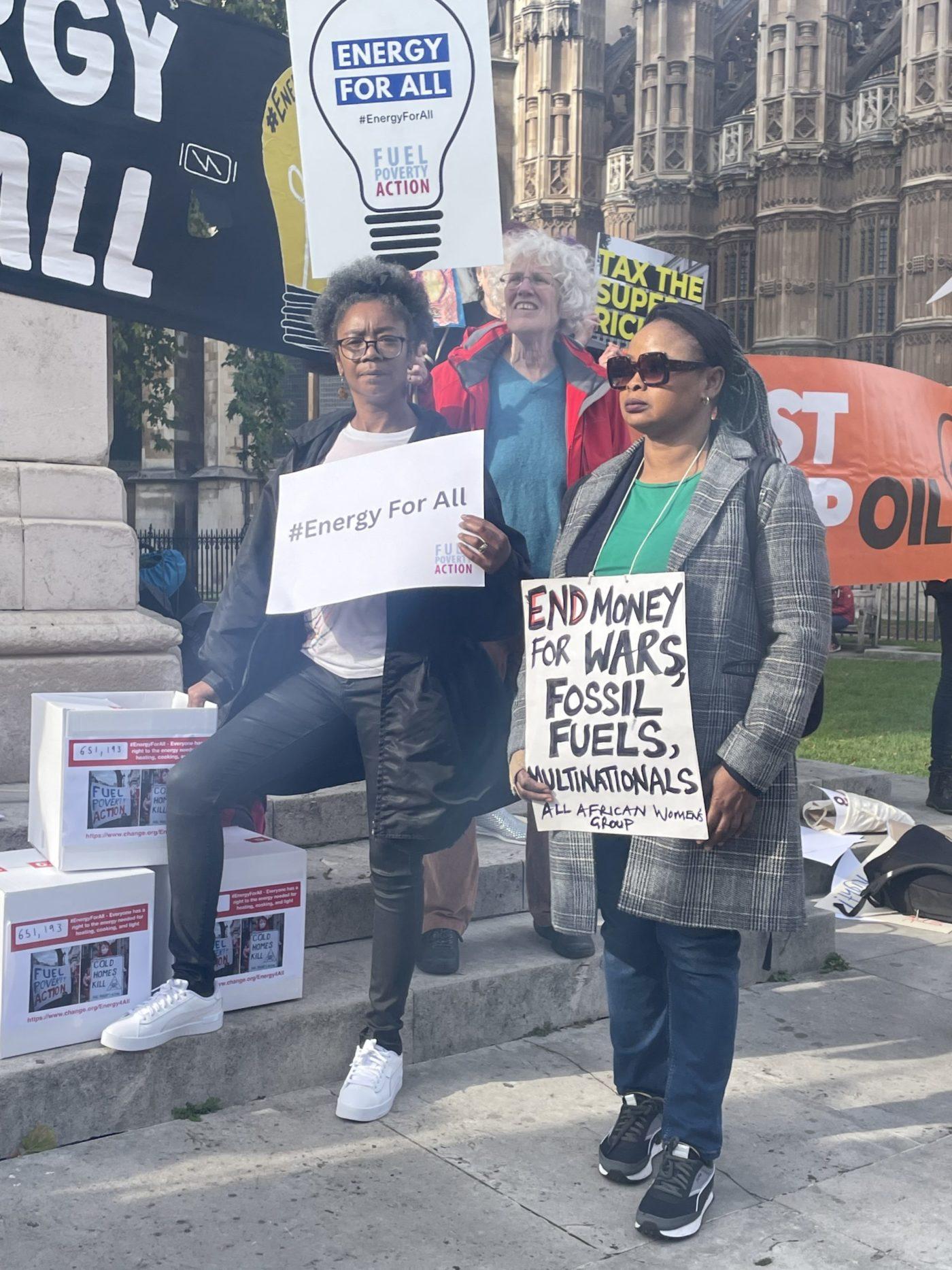Clive Lewis For Norwich South
The Energy Equity Commission Bill was presented on Tuesday 18th October by Clive Lewis, the Labour MP for Norwich South[1]. It proposes the establishment of a Commission to prepare a strategy for the UK Government on supporting households, businesses, non-profit organisations, and public services with energy costs. This includes the introduction of a free Universal Basic Energy Allowance, and a retrofitting push.
The bill is co-sponsored by MPs representing five political parties. This includes the Green Party’s Caroline Lucas, the ‘Baby of the House’ Labour’s Nadia Whittome, and serving group leader for Plaid Cymru Liz Saville-Roberts.
The proposals come the day after Chancellor Jeremy Hunt signalled that support for households on energy costs would be cut from April 2023. This could see the average bill double to an average of £4,347[2].
The New Economics Foundation has conducted illustrative modelling for a system of ‘free basic energy’ could be implemented through a rising block tariff. This would replace the existing price cap system. The first 8,000 kilowatt hours of gas and first 2,000 kilowatt hours of electricity would be provided free of charge. The average 10% of the poorest households would see 90% of their energy consumption covered. [3]
This package would also include a new ‘energy element’ in Universal Credit and Legacy Benefits, and a ‘cost of living allowance’ payment to all families worth £750. The think tank concludes this package “would provide more than double the support that the government is currently offering, but at less than half the price of freezing the price cap”.
Additional measures in the bill include a complementary social tariff, which has been proposed by organisations including the TUC[4], and National Energy Action and Fair By Design[5].
There is strong public support for a Universal Basic Energy allowance. Nationwide polling found that three quarters of the public support the right to free energy to meet people’s basic needs, with only 10% opposing. A further 81% support the abolition of the standing charge.[6]
The demands are being supported by the grassroots campaign Fuel Poverty Action. The ‘Energy For All’ petition being coordinated by the group has been signed by over 600,000 members of the public, and calls for a “free amount of energy – that is enough energy, free, to cover the basics like heating, cooking, and lighting”.[7] It is being handed in to Downing Street by campaigners on Wednesday 19th October.
The call from MPs for a new direction from the Government comes as analysis from multiple think tanks reveals the extent of the Energy Price Guarantee’s unfair distribution of support, and the failure to incentivise energy demand reduction among higher-energy consuming households.
Analysis by the Progressive Economy Forum shows that the poorest households in Britain will be left paying 47% of their disposable income on energy costs this year compared with the top 10% of earners, who will see only one-fifth of their disposable income going towards energy costs.[8] The Resolution Foundation estimates the top fifth of households may gain around £1,300 this winter, compared to £1,100 for the lowest-income fifth.[9]
The call combines the need to improve support for energy bills while aiming to reduce energy demand in the long-term through a nationwide retrofitting push. Estimates suggest 1 in 4 pounds spent on energy bills is currently being wasted due to the energy inefficiency of the UK’s housing stock.[10]
The rising block tariff system for energy pricing would also incentivise higher energy consuming households to reduce their energy use, as every marginal unit of energy beyond the free basic entitlement would be increasingly expensive.
Higher income households are typically higher energy users[11], and so it would be those with a greater ability to shoulder higher energy prices that would be targeted for energy demand reduction.
The calls also come in the context of a growing urgency for nations to scale up action on the climate crisis.
In its ‘State of Climate Services’ report published in October, the World Meteorological Organization urged nations to improve energy efficiency and investment in clean forms of energy generation scale up energy measures, and called for a “a complete transformation of the global energy system.”[12]
Commenting on the report’s publication, Dr Faith Birol, the Executive Director of the International Agency, called for “long-term planning and bold policy action to spur investment.” Francesco La Camera, IRENA’s Director-General, said that “anything short of radical and immediate action will ultimately eliminate the chance of staying on the 1.5°C path.”
Clive Lewis, the Labour MP for Norwich South and Sponsor of the Energy Equity Commission Bill:
“The 21st century has so far been dominated by economic and climate shocks, and worsening inequality. In this age of turbulence there’s an urgent need for a new social settlement to face the century ahead, that ensures that when it comes to life’s essentials the varying needs of all are met – from energy to housing, from connectivity to healthcare.”
“Too many households do not have their essential energy needs met. The Government’s package fails to correct the inequities in the current energy pricing system, and scale up retrofitting to address the UK’s ageing and leaky housing stock. The Chancellor’s announcement means people will be pushed over a cliff edge come April 2023. Until then, the Government’s plan will continue to benefit the richest the most, and let oil and gas companies off the hook for polluting and profiteering.”
“Access to energy to meet the needs of a decent life is a basic right. That is why I am proposing the introduction of a free Universal Basic Energy allowance and a retrofit revolution.“
Ruth London, a spokesperson for Fuel Poverty Action, said:
“It’s fantastic to see support inside parliament for a free energy entitlement like Energy For All, and the moves towards a Commission to discuss this proposal. Energy For All will turn an upside down pricing system right side up, so it will no longer be the poorest people, using hardly any energy, who pay the highest price”
“It will give us energy security where it matters — in our homes, and will incentivise a major insulation and retrofitting programme. Over 600,000 people have signed our petition, which will be handed in at Downing Street on Wednesday 19 October, just after the launching of the Bill and the Early Day Motion. A popular movement and MPs are now pulling in the same direction. This is an idea whose time has come.”
FOOTNOTES
[1] The Energy Equity Commission bill is a Private Members’ Bill being presented on Tuesday 18th October. The Bill’s Long Title is published in Parliament’s Order Paper: https://commonsbusiness.parliament.uk/Document/59597/Pdf?subType=Standard
Please note: The Private Members’ Bill establishes a Commission to make recommendations to Government because of the limitation on Private Members’ Bills to make changes to public spending. In practice, a willing Government could implement these changes directly, without going through a Commission.
[2] Cornwall Insight: response to domestic energy price guarantee announcement (17 October 2022)
[3] New Economics foundation: ‘Warm home, cool planets’ (5 September 2022)
[4] The TUC: A fairer energy system for families and the climate (July 2022)
[5] Fair By Design and National Energy Action: Solving the cost of living crisis – the case for a new social tariff in the energy market (July 2022)
[6] Polling by ICM for Fuel Poverty Action (June 2022)
[7] Energy For All petition, Change.org
[8] Progressive Economy Forum: New PEf research shows energy price failure (22 September 2022)
[9] Resolution Foundation: A blank cheque (13 September 2022)
[10] Great Homes Upgrade
[11] Resolution Foundation: A blank cheque (13 September 2022)
[12] World Meteorological Organization: Climate change puts energy security at risk (11 October 2022)
NOTES TO EDITORS
About the Energy Equity Commission Bill:
- The Energy Equity Commission Bill is co-sponsored: by Caroline Lucas MP; Nadia Whittome MP; Claire Hanna MP; Stephen Farry MP; Stephen Farry MP; Liz Saville Robert MP; Olivia Blake MP; and Rachael Maskell MP.




